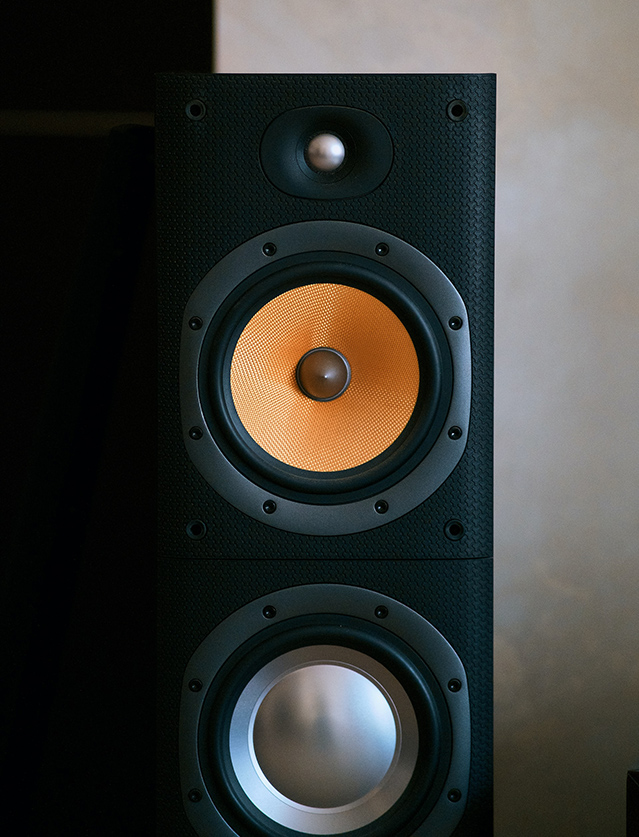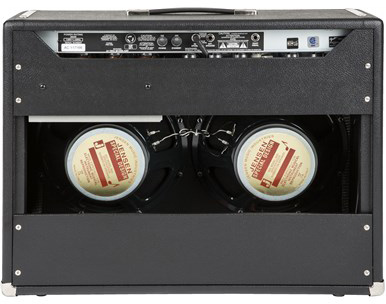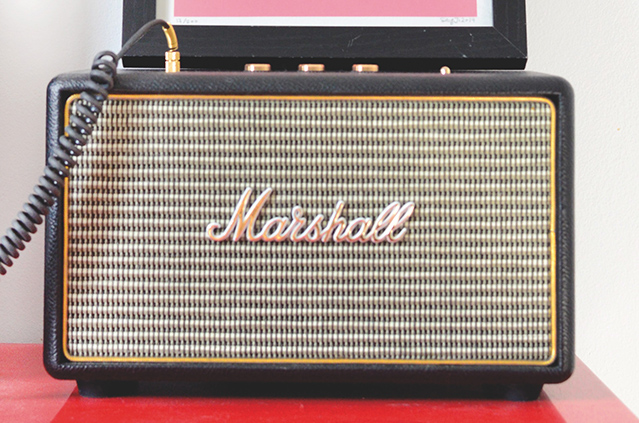Guitar amps produce sound, and stereo systems or Bluetooth/computer speakers also change electrical signals into sound. But what’s the difference between them? Can we use an amp as a speaker or vice versa? We’ll find that out in this article, but first, let me give a generalized distinction between an amp and a speaker system:
Though very similar, an amp and a speaker system have an important difference in that a guitar amp is designed to produce a limited frequency-range sound. In contrast, a home stereo/hi-fi speaker system is designed to reproduce a much broader or full spectrum of audio.
Guitar Amp Vs. Stereo Speakers: Key Differences
| Guitar Amp | Stereo System | |
|---|---|---|
| Frequency Range | Limited (80-6000Hz) | Mostly full range (20-20000Hz) |
| Speaker | One, two or multiple speakers of the same type | Mutiple drivers with crossovers (e.g Sub-woofer, midrange driver and tweeter) |
| Tone Coloring | High. Even with no effects on | Very less or none in the case of a hi-fi system |
| Input Impedance | Very high | Low to medium for “line level” audio |
Guitar Amp Vs. Stereo Speakers: Details
Both guitar amps and home stereo or speaker systems have three main parts – the preamp, the power amp, and the loudspeaker that converts electrical signals into audio waves or sound. Let’s see how each of these differs between the two.
Preamp
The guitar preamp is specially designed to convert a very specialized input signal and convert it into a signal that the power amp section will amplify. But a preamp does much more than that in a guitar amp. It’s also responsible for sculpting the signal in a way to make the guitar sound as good as possible. The input signal and sound output are very specific to the frequencies expected from a guitar. Most guitar amps also have built-in effects, mostly applied at this stage to make the guitar even better and more guitar-like.
In contrast, a preamp in a home speaker-systems like a hi-fi, home theater, or Bluetooth speaker is only responsible for “normalizing” the signal from the different sources like auxiliary input, MP3, player, microphone, etc. The preamp in such a speaker system will try to keep the signal as close to the original as possible. A high-fidelity or hi-fi system will keep the signal exactly as the source without any tone-coloring so that the original sound can be played exactly as it was recorded.
Frequency Range
Guitar amps are specialized speaker systems meant for playing guitars that have a frequency range from around 80Hz to 6000Hz. This means that a guitar signal will have a certain frequency pattern in which the different frequencies are stacked. The main frequency range is up to 1200Hz, and then harmonics extend the range to 6000Hz. The audio processing in the amp expects to work in this range, sculpting and coloring the tone appropriately to make the guitar sound good.
On the other hand, most speaker systems and all hi-fi systems will have a frequency range close to the human hearing range, which is 20Hz to 20,000Hz. These systems do not assume the signal to be in any specific range, nor do they favor any. Most systems having an EQ will let you sculpt the tone in the full range but will not do much else to color the signal further.
Loudspeaker/Driver

One of the most visible and physical differences between a guitar amp and a speaker system is the speakers. Most guitar amps will have a speaker (or multiple speakers of the same type) designed specifically for the guitar’s frequency range. Though, some high-end amps may have a horn or twitter.

Alternately, while many smaller speaker systems like Bluetooth ones have a full-range speaker, most, if not all, bigger systems like a home theater or hi-fi systems will have multiple speakers to effectively produce the full audible range. This can include a subwoofer for the low-end, a mid-range driver, and a tweeter.
Can I use a guitar amp as a speaker?

From our ongoing discussion, it’s pretty clear that guitar amps and speaker systems not only expect a very different kind of signal but also produce a different kind of sound suitable for each, which brings us to the fact that most guitar amps will not sound good as speakers for playing music.
Some guitar amps, especially smaller/practice ones, come with an aux input to play backing tracks, and these amps will be safe for music playing. Although, they would still sound bad.
However, we do not recommend hooking up your phone or iPod to the guitar input – not only is the input mono, but it expects a different impedance and signal strength than your MP3 player. You can easily damage the amp if you play at higher volumes.
If you are brave enough and want to give it a try – keep the signal from the player very low and use the amp volume to control loudness.
Can I use my stereo/hi-fi system/Bluetooth speaker as a guitar amp?
With the improvement in technology making amp modeling/simulation very affordable, getting a multi-effects pedal or a small headphone amp and playing the guitar through your powered speakers is possible.
However, if you directly hooked the guitar to a speaker system, chances are you probably won’t get any sound or very bad sound. But with a good amp modeling system, it’s possible to get quite a nice tone if you put effort into doing some trial-and-error and tweaking.
An amp modeler, along with a cabinet simulator, can process the guitar signal and make it sound more guitar-like. When you feed this pre-processed signal into a speaker system or stereo, you get a sound pretty close to how a guitar would sound through a real guitar amp (of course, depending on the speaker system itself). A good quality hi-fi system can sound almost as good as a guitar amp to most people if you can get the amp and cab simulation right.

